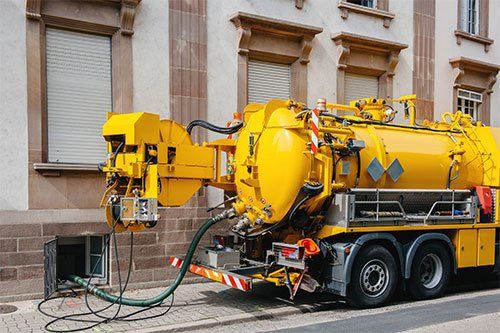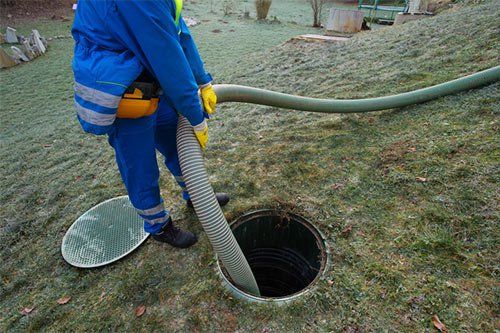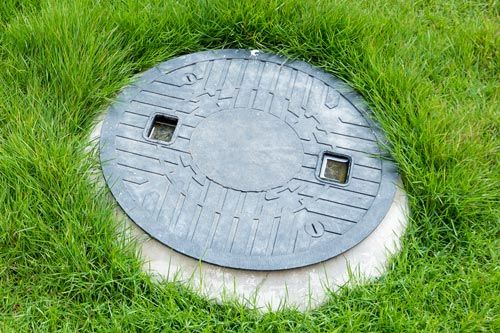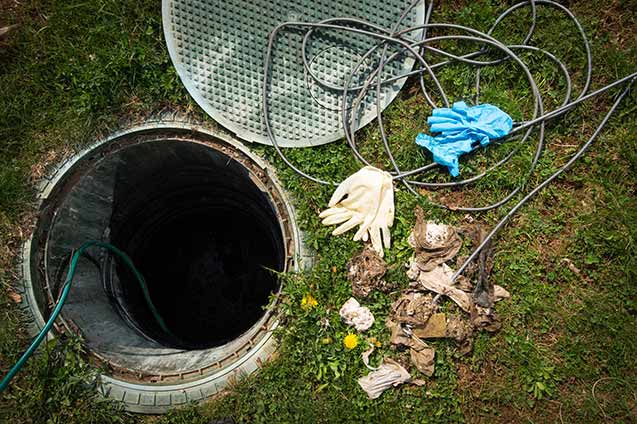Your Septic System and the Importance of Water Conservation
- By Admin
- •
- 25 Apr, 2018
- •

It's estimated the average American uses approximately 88 gallons of water each year. In addition to being expensive, using too much water can have a terrible impact on the environment and your septic system. Using too much water throughout the day for several weeks or months on end can overload your septic system, which can be disastrous.
Here is some important information about water conservation and your septic system – including tips to help you reduce your water usage.
Here is some important information about water conservation and your septic system – including tips to help you reduce your water usage.
Understanding Water Conservation and Your Septic System
All the wastewater that you flush down the toilet, put down the kitchen sink, or that drains from your dishwasher and washing machine ends up in your septic tank. Once in the tank, the solids sink to the bottom and any oils and grease will naturally float to the top. The bacteria that is naturally found in the tank will break down the solids, which allows the wastewater to more easily drain into the leach field.
However, if you and your family are constantly introducing wastewater into the septic system, this natural settling of solids will not occur. Eventually, all that water will interfere with the natural bacterial processes that occur in the septic tank. This can lead to the septic tank backing up or the contents of the septic tank flooding your leach field and backyard.
In addition to creating a costly mess, once the wastewater floods your backyard, it could wind up polluting the groundwater. This will impact not only your drinking water but also the plant life and animals near your home. The best way to prevent this disaster from occurring is to learn how to conserve water throughout your home.
However, if you and your family are constantly introducing wastewater into the septic system, this natural settling of solids will not occur. Eventually, all that water will interfere with the natural bacterial processes that occur in the septic tank. This can lead to the septic tank backing up or the contents of the septic tank flooding your leach field and backyard.
In addition to creating a costly mess, once the wastewater floods your backyard, it could wind up polluting the groundwater. This will impact not only your drinking water but also the plant life and animals near your home. The best way to prevent this disaster from occurring is to learn how to conserve water throughout your home.
Saving Water in the Kitchen
A perfect place to begin saving water is in your kitchen. Here are a few simple tips to help you stop overusing water in your kitchen:
- Avoid rinsing your dishes. Instead of running the water while you rinse off your dishes, scrape or wipe off any leftover food with a rag or paper towels. If you encounter any tough stains, soak the dishes in the sink rather than running water over them.
- Quit using your garbage disposal. When you turn on your garbage disposal, you also turn on your faucet, which wastes a lot of water. On top of this, the food waste you put down your garbage disposal ends up in your septic tank. This can cause your tank to become clogged, which will lead to a backup.
- Use your cooking water twice. After you boil your pasta, instead of pouring the water down the drain, find another use for it. For example, you could let the water cool and use it to water your indoor plants.
- Fill your dishwasher. When you're ready to do your dishes, make sure as much food waste as possible is scraped off and that you completely fill the dishwasher.
If your dishwasher is older, consider upgrading to a model that is more energy-efficient and has a water-conserving setting.
Saving Water in the Bathroom
In addition to saving water in the kitchen, you can also conserve water in your bathroom. For example, set a timer while everyone in your family takes a shower to reduce your water usage. Make it a habit to turn off the water when you're brushing your teeth, and fill the sink with water to wash your face or shave.
Upgrade your toilet and showerhead to more high-efficiency models to dramatically cut down on the amount of water you use every day.
Conserving water throughout your home can help you save money and prevent your septic system from backing up or overflowing. If you have any more questions, contact Al's Septic Tank Service.
Upgrade your toilet and showerhead to more high-efficiency models to dramatically cut down on the amount of water you use every day.
Conserving water throughout your home can help you save money and prevent your septic system from backing up or overflowing. If you have any more questions, contact Al's Septic Tank Service.
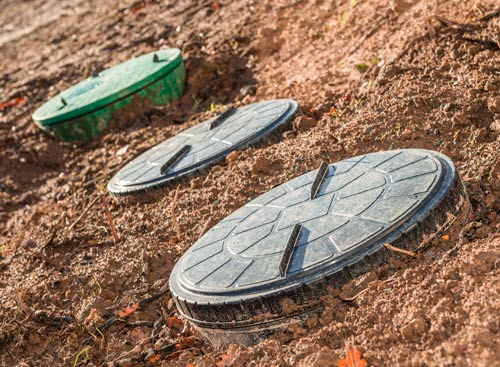
When you think about home maintenance, you probably think about washing the exterior siding, mowing the lawn, and shampooing the carpet. While these tasks are necessary, maintaining a healthy, functional septic system is also important.
Your septic tank is capable of breaking down some waste and debris. However, over time, excess waste and debris may build up faster than the septic system can break it down. This excess buildup can lead to a backed-up tank that can affect your home and yard. Thankfully, pumping your septic tank can improve the system's function. Here are three signs professionalsneed to pump your septic tank.
Your septic tank is capable of breaking down some waste and debris. However, over time, excess waste and debris may build up faster than the septic system can break it down. This excess buildup can lead to a backed-up tank that can affect your home and yard. Thankfully, pumping your septic tank can improve the system's function. Here are three signs professionalsneed to pump your septic tank.
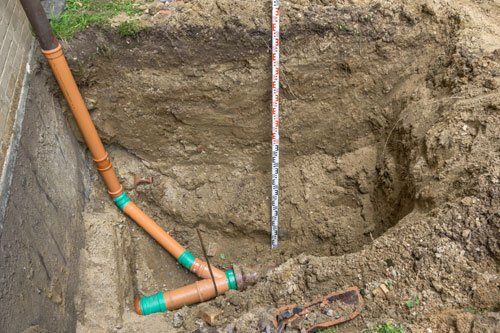
Tree roots are a common cause of clogged sewer lines, leading to sewage backups in your home. These clogs are insidious because they seem to happen without warning. That's not quite true, though — often there are warning signs. Learn why this happens so you can recognize the problem and request sewer line repairs as soon as possible
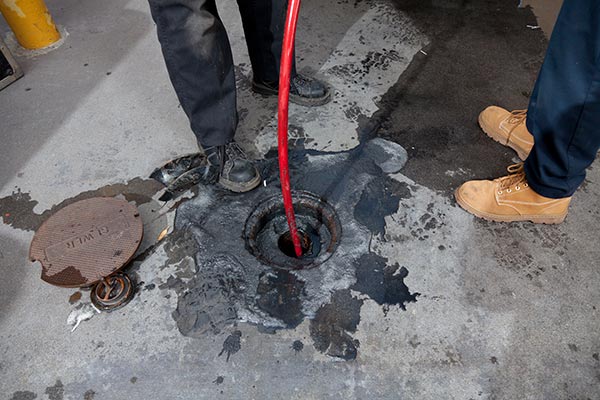
Properly caring for your septic system, which includes having it inspected yearly and pumped on a regular schedule, will ensure that it continues to work smoothly. If you're a new septic system owner, you might not be aware of the common mistakes that can cause your septic tank to backup, overflow, or completely fail.
Here are four of the most common septic system owner mistakes that you need to avoid.
Here are four of the most common septic system owner mistakes that you need to avoid.

Blogging is all about content and how you present it to the viewer. The content needs to be accurate (both the language and the information), to the point (Give people what they want) and useful for the reader ("I wanted to know about iPhone 6, not the history of Apple").
Here are some guidelines for writing a professional post:
Here are some guidelines for writing a professional post:

Welcome to your new blog!
Use the blog to tell a story, share information and knowledge, help your customers and drive traffic to your site. Your work on the blog will advance your site in search engines and bring new visitors who find your input useful.
A blog is based on posts (just like this one). Posts are the building blocks of the blog. All blog elements take their content dynamically from the posts you create.
The blog elements include:
Use the blog to tell a story, share information and knowledge, help your customers and drive traffic to your site. Your work on the blog will advance your site in search engines and bring new visitors who find your input useful.
A blog is based on posts (just like this one). Posts are the building blocks of the blog. All blog elements take their content dynamically from the posts you create.
The blog elements include:

